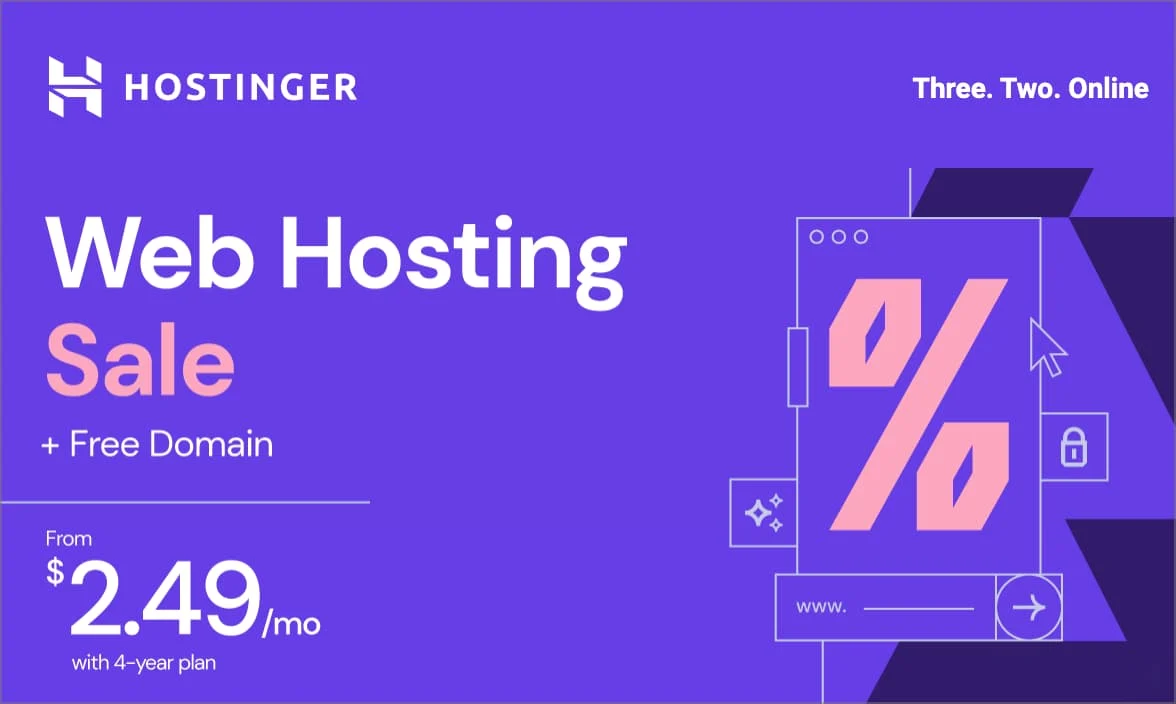
Best Business Email Services for Small Businesses
best business email
Introduction
In today’s digital age, a strong online presence is essential for businesses of all sizes. For small businesses, in particular, having a professional and reliable email system is crucial for building trust, fostering relationships, and driving growth. Business email services offer a range of benefits that can significantly impact a small business’s success.

From efficient communication and collaboration to enhanced professionalism and data security, these services provide the foundation for effective operations. Let’s explore why investing in quality business email services is a strategic move for small businesses.
Table of Contents
Why Professional Email is Crucial for Small Businesses
Certainly! Let’s delve into the importance of professional email services for small businesses. 📧
Why Professional Email Matters
Having a dedicated business email address on your domain is more than just a formality; it’s a strategic move that can significantly impact your brand and business. Here’s why:
- Credibility and Trust:
- Importance: A professional email address (e.g., [email protected]) signals legitimacy and professionalism. It shows that you take your business seriously.
- Benefits: Clients, customers, and partners are more likely to trust and engage with businesses that use custom email addresses rather than generic free ones (like Gmail or Yahoo).
- Branding and Consistency:
- Importance: Your email domain is an extension of your brand. Consistent branding across all communication channels reinforces your identity.
- Benefits: Using a custom domain ensures that your email aligns with your website and other marketing materials. It reinforces your brand image.
- Security and Privacy:
- Importance: Free email services are vulnerable to hacking, phishing, and data breaches.
- Benefits: Business email providers offer better security features, including encryption, spam filters, and two-factor authentication. Protecting sensitive information is crucial for your business.
- Professional Appearance:
- Importance: First impressions matter. An unprofessional email address (e.g., [email protected]) can raise doubts.
- Benefits: A custom email address enhances your business’s appearance and makes you stand out. It’s like wearing a tailored suit instead of casual attire.
- Scalability and Collaboration:
- Importance: As your business grows, managing emails becomes more complex.
- Benefits: Business email services provide scalability, allowing you to add or remove accounts easily. Collaboration features (shared calendars, document sharing) streamline teamwork.
Choosing the Right Provider
Now that we’ve highlighted the importance of professional email, let’s explore some top providers for small businesses:
- Google Workspace:
- Best Value Overall: Google Workspace (formerly G Suite) offers a suite of tools, including Gmail, Google Drive, and collaborative apps. It’s ideal for businesses that prioritize collaboration.
- Starting Cost: Plans start at $6 per user per month.
- Storage: 30GB per user (upgradable to unlimited storage with higher-tier plans).
- IONOS:
- Cheapest Plans With a Domain: IONOS provides budget-friendly email hosting plans that include domain registration.
- Starting Cost: Plans start at $1 per month.
- Storage: 5GB per mailbox.
- Zoho Mail:
- Best Free Solution: Zoho Mail offers a free plan with custom domain email addresses. It’s great for startups and small teams.
- Starting Cost: Free (paid plans available for additional features).
- Storage: Unlimited (for paid plans).
- Canary Mail:
- Best AI Email Provider: Canary Mail integrates AI for smarter email management and security.
- Starting Cost: Varies based on platform (iOS, macOS).
- Storage: Depends on the connected email service (e.g., Gmail, iCloud).
The right choice depends on your specific needs, budget, and desired features. Evaluate ease of use, scalability, security, and customer support before making your decision.
Key Features to Look for in Business Email Services
Certainly! When it comes to choosing a business email service, there are several key features you should consider. Let’s dive into the details:
- Sufficient Storage: A good email service should provide ample storage space for your business needs. Look for providers that offer generous storage quotas, especially if your team deals with large attachments or archives a lot of emails.
- Custom Domain: Having a custom domain (e.g., [email protected]) is essential for professional branding. Ensure that the email hosting service allows you to use your own domain name, reinforcing your business identity.
- Integration with Other Tools: Seamless integration with other business applications is crucial. Consider services that work well with tools like calendars, project management software, and customer relationship management (CRM) systems.
- Security Features: Security is paramount. Look for email hosting providers that offer robust security measures, including spam filters, encryption, and two-factor authentication. Protecting sensitive business information is non-negotiable.
- Backup and Recovery: Regular backups and reliable recovery options are essential. Accidental deletions or system failures happen, so choose a service that ensures your data is safe and recoverable.
- Archiving Capabilities: Compliance requirements often necessitate email archiving. Make sure your chosen service supports archiving features, allowing you to store and retrieve old emails as needed.
- Round-the-Clock Support: Technical issues can disrupt business operations. Opt for an email hosting provider that offers 24/7 customer support to address any problems promptly.
The right email service can enhance productivity, collaboration, and professionalism within your organization. Evaluate your options carefully and choose one that aligns with your business needs and goals .
Google Workspace Features
Google Workspace offers a comprehensive suite of productivity applications. Here are some key features:
| Feature | Description |
|---|---|
| Email and Chat | Integrated email, chat, and video conferencing in one place. |
| Real-Time Syncing | Seamless synchronization across devices, ensuring you’re always up to date. |
| Collaboration Tools | Real-time editing of documents, spreadsheets, forms, and slides for efficient teamwork. |
| Calendar and Content Mgmt. | Manage schedules, events, and content within your organization. |
| Customization | Customize dashboards and settings to suit your business needs. |
| Video Conferencing | Improved video conferencing tools for virtual meetings and collaboration. |
Google Workspace Pricing Plans
Google offers several pricing tiers:
Pricing Plans:
| Plan | Price/User/Month |
|---|---|
| Business Starter | $6 |
| Business Standard | $12 |
| Business Plus | $18 |
| Enterprise (Custom) | Varies |
Pros and Cons:
| Pros | Cons 🤔 |
|---|---|
| 🚀 Integrated email, chat, and meetings<br>🚀 Real-time syncing across devices<br>🚀 Features that keep employees informed | 💡 Limited storage for lowest tier |
| 🚀 All Business Starter features<br>🚀 Enhanced video conferencing tools | |
| 🚀 All Business Standard features<br>🚀 More customization for dashboards | |
| 🚀 Advanced administrative controls<br>🚀 Tailored for larger companies |
Google Workspace offers a powerful suite of tools to boost productivity and collaboration. Feel free to ask if you need more details!
Microsoft 365: Most Advanced Features
Certainly! Let’s explore Microsoft 365, a powerful productivity suite that seamlessly combines desktop-based apps with online and mobile platforms. I’ll provide an overview of its features, pricing plans, and the pros and cons.
Microsoft 365 Features
Microsoft 365 offers a robust set of tools for serious office work. Here are the key features:
| Feature | Description |
|---|---|
| Desktop Apps | Native apps for Windows and macOS, including Word, Excel, PowerPoint, and more. |
| Cloud-Based Apps | Web-based versions accessible from any browser, ensuring flexibility. |
| Windows App | Full suite available as subscription-based desktop apps on Windows. |
| Mac App | Same suite available for macOS users. |
| Mobile Apps | Free mobile versions for iOS and Android, allowing productivity on the go. |
| Online Collaboration | Facilitates teamwork and real-time editing of documents, spreadsheets, and presentations. |
| Opens/Saves Microsoft Formats | Seamless compatibility with common Microsoft file formats. |
| Imports From PDF | Ability to import content from PDF files. |
| View/Edit Format Codes | Advanced formatting options for power users. |
| Mail App Included | Integrated email client for efficient communication. |
| Links to Live Web Data | Connects to external data sources for dynamic content. |
| Records Macros | Automate repetitive tasks using macros. |

Microsoft 365 Pricing Plans
Here’s a breakdown of the pricing plans:
| Plan | Price/User/Year |
|---|---|
| Personal | $69.99 |
| Family (up to 6 users) | $99.99 |
| Business Basic | $6/user/month |
| Business Standard | $12/user/month |
| Business Premium | $22/user/month |
Pros and Cons
| Pros | Cons 🤔 |
|---|---|
| 🚀 Powerful, feature-rich office suite<br>🚀 Smooth collaboration features<br>🚀 Distraction-free focus view in Word | 💡 Outlook’s new version lacks essential features<br>💡 Word’s automation features can be intrusive |
| 🚀 Convenient automated features in Excel<br>🚀 Regular updates with added features<br>🚀 Access to web and mobile versions | 💡 Some features are deeply hidden in obscure menus |
Microsoft 365 is an Editors’ Choice winner and the best overall office suite. While it offers complexity, streamlining efforts are underway. 😊
Overview of Features
| Feature | Description |
|---|---|
| Storage | 50GB of mail storage per user |
| Domains | Multiple domains supported |
| Aliases | Unlimited aliases |
| Access | POP3, IMAP, and web client access |
| Collaboration Tools | Full suite of collaboration tools (e.g., chat, calendar, tasks) |
| Security Controls | Robust security features (anti-spam, anti-phishing, native email encryption) |
| Integration | Integration with other Zoho products |
Pricing Plans
Plan | Price (Per User/Month) | Features |
|---|---|---|
| Premium | $4 | – 50GB mail storage per user<br>- Multiple domains support<br>- Unlimited aliases<br>- Collaboration tools<br>- Robust security controls |
| Lite | $1 | – 5GB email storage per user<br>- Email hosting across multiple domains<br>- Offline access<br>- Microsoft compatibility<br>- Scheduling module |
Pros and Cons
| Pros | Cons |
|---|---|
| Generous Storage: 50GB at an affordable price. | Interface Usability: Can be confusing and less intuitive. |
| Collaboration Tools: Full suite for team collaboration. | Integration Focus: Primarily integrates with other Zoho products. |
| Security Controls: Strong anti-spam and anti-phishing features. | |
| Microsoft Compatibility: Works with Microsoft Outlook and Exchange ActiveSync. | |
| Value for Money: Great value, especially for small businesses. |
Proton Mail Overview
Proton Mail is known for its robust security features and commitment to user privacy. Here’s a concise overview:
| Feature | Description |
|---|---|
| End-to-End Encryption (E2E) | All email, contacts, and calendar data are protected using strong E2E encryption. |
| Zero-Access Encryption | Proton Mail ensures that even they cannot access your encrypted data. |
| Swiss Jurisdiction | Operates under Swiss laws, known for their privacy-friendly regulations. |
| Data Storage | Servers located in Switzerland, safeguarding your information. |
| Open Source | Web client, encryption algorithms, Android, and iOS code are open source. |
| Custom Domains | Support for using your own domain with Proton Mail. |
| IP Address Stripping | Removes IP addresses from emails for added privacy. |
| Third-Party Email Clients | Can be used with third-party clients via the Proton Mail Bridge feature. |
| Self-Destructing Messages | Send messages that automatically delete at a specified time. |
| Address Verification | Ensures the integrity of public keys received from other users. |
Pricing Plans
Proton Mail offers three pricing tiers:
| Plan | Monthly Cost | Annual Cost |
|---|---|---|
| Free Tier | $0 | N/A |
| Plus Plan | $3.99 | $47.88 |
| Unlimited Plan | $9.99 | $119.88 |
Pros and Cons
| Pros | Cons |
|---|---|
| Strong Encryption (E2E and zero-access) | Unencrypted Subject Lines |
| Swiss Jurisdiction (Privacy-friendly laws) | Personal Information Requirement |
| Server Location in Switzerland | |
| Open Source (Transparency) | |
| Custom Domains | |
| IP Address Stripping | |
| Third-Party Client Support |
Hostinger Overview
Hostinger is a popular web hosting service that caters to both beginners and professionals. Here are the key features:
| Feature | Description |
|---|---|
| Hosting Plans | Hostinger offers various plans, including Single Web Hosting and Business Hosting. |
| Website Builder | An intuitive website builder is available for all plans. |
| Uptime Guarantee | Hostinger promises 99.9% uptime for your website. |
| Quick Loading Speed | Dedicated IPs and servers operating on CloudLinux ensure fast loading times. |
| Full Root Access | Gain complete control of your server with full root access. |
Pricing Plans
Here’s a breakdown of Hostinger’s pricing plans:
| Plan | Starting Price | Features |
|---|---|---|
| Single Web Hosting | $2.99/month | Basic plan for simple websites. Includes one email account. |
| Business Hosting | Custom pricing | Ideal for growing businesses. Offers WordPress staging, unlimited databases, and daily backups. |
Pros and cons of Hostinger:
| Pros | Cons |
|---|---|
| ✔️ Website Builder | ❌ No cPanel (traditional control panel) |
| ✔️ Multilingual Customer Support | ❌ No Telephone Support |
| ✔️ High User Ratings | ❌ Nonstandard Refund Terms |
| ❌ Limited Email Accounts (only one on Single Web Hosting plan) |
Remember that Hostinger is a budget-friendly option with impressive features. If you need more information, feel free to explore their website! 😊
DreamHost Business Email
Certainly! Let’s dive into the details of DreamHost’s business email services. I’ll provide an overview of features, pricing plans, and pros and cons, all neatly organized in tables. 🚀

DreamHost Business Email Services Overview
| Features | Details |
|---|---|
| Email Hosting Cost | $1.67 per month per mailbox (with a yearly plan) |
| Storage per Mailbox | 25 GB |
| IMAP Sync | Ensures emails are perfectly synced across devices |
| Freebies | Free SSL certificates, free domain, and free WHOIS Privacy protection |
Pricing Plans
| Plan | Monthly Cost (per mailbox) | Annual Cost (per mailbox) |
|---|---|---|
| Monthly Plan | $1.99 | N/A (monthly billing) |
| Yearly Plan | $1.67 | $20.04 |
Pros and Cons
| Pros | Cons |
|---|---|
| ✓ Easy WordPress installs with one-click setup | ✗ Antimalware tool is a paid add-on |
| ✓ Unmetered bandwidth on all plans | ✗ Slower average response time compared to competitors |
| ✓ Free secure sockets layer (SSL) certificates | ✗ No customer support phone number |
| ✓ 97-day money-back guarantee for shared hosting | ✗ No money-back guarantee for VPS and dedicated plans |
Remember, DreamHost caters to both beginners and experts, making it a versatile choice for your business email needs. If you have any more questions, feel free to ask! 😊
Source: DreamHost Review 2024: Pricing, Pros & Cons – Forbes Advisor
IONOS: Cheapest Plans with a Domain
Certainly! Let’s delve into the details of IONOS’s business email services. I’ll provide an overview of features, pricing plans, and pros and cons, all neatly organized in tables. 🚀
IONOS Business Email Services Overview
| Features | Details |
|---|---|
| Mail Basic 1 | Single email account with 2GB storage |
| Mail Basic 1+ | Enhanced features with 5GB storage |
| Mail Business | Premium features with 50GB storage |
| Domain Extension | Included: .com, .us, .online, or .net (for Basic plans) and more for Mail Business |
| Free Trial | 30-day trial available |
Pricing Plans
| Plan | Monthly Cost (per account) | Annual Cost (per account) |
|---|---|---|
| Mail Basic 1 | $1 | N/A (monthly billing) |
| Mail Basic 1+ | $4 | $48 |
| Mail Business | $5 | $60 |
Pros and Cons
| Pros | Cons |
|---|---|
| ✓ Great, personalized customer support | ✗ Inconsistent spam filter |
| ✓ Flexible pricing options | ✗ Only one free email account per plan |
IONOS offers reliable email hosting, especially if support matters to you. It’s a solid choice for small businesses looking to enhance their brand credibility. If you have any more questions, feel free to ask! 😊
*Sources: TechRadar , Forbes Advisor, Fitsmallbusiness *
Canary Mail: Best AI Email Provider
Certainly! Let’s explore Canary Mail, the AI-powered email provider that combines convenience with security. I’ll break down the features, pricing plans, and pros and cons for you. 🚀
Overview of Canary Mail
Canary Mail is a multi-platform email app that works on Windows, MacOS, Android, iOS, and more. It leverages artificial intelligence (AI) capabilities from OpenAI and Cohere, along with an open-source language model from Hugging Face. Here’s why it stands out:
- Custom Thread Actions: Organize email threads effortlessly by setting specific actions for each thread.
- Inbox Prioritization: Sidekick AI automatically categorizes emails based on importance.
- Email Summarization: Sidekick AI summarizes lengthy emails, highlighting key points.
- Cross-Device Sync: Access your emails consistently across all devices.
- Email Templates: Save time by using predefined email formats.
Canary Mail’s encryption technology, built on PGP (Pretty Good Privacy), ensures secure communication while enhancing your email experience.
Pricing Plans
Choose from a range of plans to suit your needs:
| Plan | Monthly Cost (per user) | Annual Cost (per user) |
|---|---|---|
| Free Plan | $0 | N/A (monthly billing) |
| Pro Plan | $20 | $240 |
Pros and Cons
| Pros | Cons |
|---|---|
| ✓ AI summarizer, secure email send, unified inbox | ✗ Limited free features |
| ✓ Cross-platform compatibility | ✗ No free end-to-end encryption in the free plan |
Canary Mail is trusted by over 500,000 users worldwide and backed by Sequoia. Give it a try—it might just transform your workflow! If you have any more questions, feel free to ask. 😊
Sources: Neo.Space, PCMag UK, CiroApp, PCMag Middle East
In Motion Hosting: Best for Guaranteed Uptime
InMotion Hosting caters to over 170,000 customers globally, offering a diverse range of hosting types. Here’s what you can expect:
- Web Hosting Plans: Four shared hosting plans with competitive pricing.
- Free Website Builder: Create your site easily.
- cPanel: Manage your website through a user-friendly interface.
- SSL Certificate: Included for secure communication.
Pricing Plans
Table
| Plan | Monthly Cost (per user) | Annual Cost (per user) |
|---|---|---|
| Core | $2.29 | $27.48 |
| Launch | $4.99 | $59.88 |
| Power | $7.99 | $95.88 |
| Pro | $19.99 | $239.88 |
Pros and Cons
| Pros | Cons |
|---|---|
| ✓ Excellent customer service | ✗ Month-to-month only available for Pro plan |
| ✓ Competitive pricing | ✗ Array of plan options can be confusing |
| ✓ Reliable VPS and reseller hosting | ✗ No free trial |
In Motion Hosting ensures your website stays connected even during natural disasters. Give it a try—it might just be the uptime guarantee your business needs! If you have more questions, feel free to ask. 😊
Sources: USA TODAY Forbes Advisor
Certainly! Let’s explore ScalaHosting, a hosting provider known for its daily backups and reliable services. I’ll break down the features, pricing plans, and pros and cons, all neatly organized in tables. 🚀
Scala Hosting Overview
ScalaHosting, established in 2007, offers web hosting services suitable for individual projects and business websites. Here’s what you need to know:
- Web Hosting Options: ScalaHosting provides various hosting types, including shared, dedicated, VPS, cloud, and WordPress hosting.
- Free Domain: All plans include a free domain name (renewal rates apply after the first 12 months).
- SSD Storage: Enjoy faster access with solid-state drive (SSD) storage.
- cPanel: Manage your website easily using the cPanel interface.
- Uptime Guarantee: ScalaHosting boasts a 99.99% uptime guarantee.
Pricing Plans
| Plan | Monthly Cost (per user) | Annual Cost (per user) |
|---|---|---|
| Mini | $2.95 | $35.40 |
| Start | $5.95 | $71.40 |
| Advanced | $9.95 | $119.40 |
| Entry Cloud | $14.95 | $179.40 (includes dedicated server) |
Pros and Cons
| Pros | Cons |
|---|---|
| ✓ Wide range of hosting options | ✗ Basic plan has low maximum storage |
| ✓ cPanel for easy management | ✗ Higher pricing compared to some competitors |
ScalaHosting’s reliability and customer satisfaction make it a solid choice. If you have more questions, feel free to ask! 😊
Sources: Forbes Advisor, WebsiteSetup, ScalaHosting
Certainly! Choosing the right email service provider is crucial for effective communication in today’s digital world. Let’s break down the key considerations and provide an overview of features, pricing plans, and pros and cons.

How to Choose the Right Email Service for Your Business
Factors to Consider When Choosing an Email Service Provider
- Features and Functionality:
- Evaluate the features offered by different providers. Look for:
- Customizable templates
- Automation capabilities
- Segmentation options
- A/B testing
- Integration with other tools (e.g., CRM, analytics)
- Consider whether the features align with your business needs.
- Evaluate the features offered by different providers. Look for:
- User Experience (UX):
- A user-friendly interface is essential. Check how intuitive the platform is for creating and managing campaigns.
- Look for drag-and-drop editors, responsive designs, and ease of navigation.
- Cost and Pricing Plans:
- Compare pricing models (monthly subscriptions, pay-per-email, etc.).
- Consider scalability as your business grows.
- Some popular providers include:
- Mailchimp: Offers free and paid plans with tiered pricing based on the number of subscribers.
- Constant Contact: Known for its user-friendly interface and customizable templates.
- SendinBlue: Offers transactional emails and marketing automation.
- Data Security and Compliance:
- Ensure the provider follows industry standards for data protection.
- Look for features like encryption, secure storage, and compliance with regulations (e.g., GDPR).
- Customer Support:
- Reliable customer support is crucial. Check if they offer 24/7 assistance.
- Look for online resources, chat support, and phone availability.
- Migration Process:
- Consider how easy it is to migrate from your current provider to the new one.
- Look for tools or services that facilitate smooth transitions.
Overview of Features
| Feature | Mailchimp | Constant Contact | SendinBlue |
|---|---|---|---|
| Customizable Templates | ✓ | ✓ | ✓ |
| Automation | ✓ | ✓ | ✓ |
| Segmentation | ✓ | ✓ | ✓ |
| A/B Testing | ✓ | ✓ | ✓ |
| Integration Options | ✓ (CRM, analytics) | ✓ (CRM, e-commerce) | ✓ (APIs, plugins) |
Pricing Plans
| Provider | Free Plan? | Paid Plans (Pricing) |
|---|---|---|
| Mailchimp | Yes | Essentials ($9.99+/month) |
| Constant Contact | No | Email ($20+/month) |
| SendinBlue | Yes | Lite ($25+/month) |
Pros and Cons
| Provider | Pros | Cons |
|---|---|---|
| Mailchimp | – User-friendly interface<br>- Robust features<br>- Scalability | – Limited free plan<br>- Learning curve for beginners |
| Constant Contact | – Customizable templates<br>- Strong customer support<br>- Integration options | – Higher pricing compared to some competitors<br>- Limited automation features |
| SendinBlue | – Affordable pricing<br>- Transactional emails<br>- Marketing automation capabilities | – Less intuitive interface<br>- Limited template options<br>- Customer support varies |
Remember that each business has unique requirements, so choose the provider that aligns best with your specific needs. 🚀📧
Business Email Providers Overview
| Provider | Score (Out of 5) | Free Plan / Trial | Starting Cost/Month* | Base Storage | Free Domain | Multi-user Plans |
|---|---|---|---|---|---|---|
| Google Workspace | 4.95 | ✓ | $6 | 30GB | ✕ | ✕ |
| IONOS | 4.77 | ✕ | $1 | 2GB+ | ✓ | ✓ |
| Zoho Mail | 4.59 | ✓ | $1 | 5GB | ✕ | ✓ |
| Canary Mail | 4.40 | ✓ | $6 | 50GB | ✕ | ✕ |
| Microsoft 365 | 4.38 | ✕ | $1.59 | 10GB | ✕ | ✓ |
| Hostinger | 4.36 | ✓ | $3.99 | 15GB | ✕ | ✓ |
| Proton Mail | 4.36 | ✕ | $1.67 | 25GB | ✓ | ✓ |
| DreamHost | 4.13 | ✕ | $4.95 | 50GB | ✕ | ✓ |
| Scala Hosting | 4.00 | ✕ | $3.49 | 1GB | ✓ | ✓ |
| InMotion Hosting | 3.86 | ✕ | $3.49 | 1GB | ✓ | ✓ |
*With annual billing
Pros and Cons
Google Workspace
| Pros | Cons |
| Mobile and desktop apps, high storage limits, business email security, integrations. | Monthly billing, no long-term contracts. |
IONOS
| Pros | Cons |
| Affordable, free domain, multi-user plans. | Limited storage |
Zoho Mail
| Pros | Cons |
| Free plan, unlimited emails, multi-user support. | Limited Storage |
Canary Mail
| Pros | Cons |
| AI features, secure. | Higher cost |
Microsoft 365
| Pros | Cons |
| Advanced features, integrations. | Monthly billing, limited storage |
Hostinger
| Pros | Cons |
| Plans for agencies, decent storage. | No free domain |
Proton Mail
| Pros | Cons |
| Secure, privacy-focused. | Limited storage |
DreamHost
| Pros | Cons |
| Daily backups. | Higher cost |
Scala Hosting
| Pros | Cons |
| Guaranteed uptime. | Limited storage |
InMotion Hosting
| Pros | Cons |
| Guaranteed uptime. | Limited storage |
choose the provider that best suits your business needs!
Conclusion
In this article, we explored the critical aspects of selecting an effective business email service. Let’s recap the key points:
- Security Matters: Protecting sensitive information is paramount. Opt for services that offer robust encryption, spam filters, and multi-factor authentication.
- Reliability and Uptime: Downtime can disrupt operations. Prioritize providers with high uptime guarantees and reliable customer support.
- Scalability: As your business grows, your email needs will too. Choose a service that can scale seamlessly without compromising performance.
- Collaboration Features: Look for tools that facilitate teamwork, such as shared calendars, document collaboration, and integrations with other business apps.
- Cost-Effectiveness: Balance features with cost. Consider pricing tiers, storage limits, and any hidden fees.
Final Thoughts
Selecting the right business email service isn’t just about communication; it’s about efficiency, security, and professionalism. A well-chosen service streamlines your operations, enhances client interactions, and builds trust. So, invest wisely and empower your small business with the best email solution!
Feel free to customize this conclusion further to match your blog’s voice and style. If you need any additional assistance, don’t hesitate to ask! 😊
FAQs
How much does a business email service cost?
The cost of a business email service can vary based on the provider and the features you need. Here are some common pricing models:
Basic Plans: These typically include essential features like custom domains, email hosting, and basic security. Prices can start as low as $5 to $10 per user per month.
Mid-Tier Plans: These offer additional features such as collaboration tools (calendar, contacts, and file sharing), advanced security, and better customer support. Expect to pay around $15 to $25 per user per month.
Premium Plans: For robust features like unlimited storage, advanced security protocols (such as encryption), and priority support, prices can range from $30 to $50 or more per user per month.
Remember that pricing may also depend on the number of users in your organization. Some providers offer discounts for annual subscriptions.
Can I use my own domain with these email services?
Absolutely! Using your own domain (e.g., [email protected]) adds professionalism and brand consistency to your communications. Most business email services allow custom domains. Here’s how to set it up:
Choose a Provider: Select an email service that supports custom domains. Popular options include Google Workspace (formerly G Suite), Microsoft 365, and Zoho Mail.
Verify Domain Ownership: You’ll need to prove that you own the domain. This usually involves adding a DNS record or uploading a verification file provided by the email service.
Configure DNS Settings: Update your domain’s DNS settings to point to the email service’s servers. This ensures that emails sent to your domain reach the correct inbox.
Create User Accounts: Set up email accounts for your team members using your custom domain.
Are these email services secure?
Security is crucial for business email. Most reputable providers prioritize security. Here’s what to look for:
Encryption: Ensure that emails are encrypted during transit (TLS/SSL) and at rest (server-side encryption).
Spam and Malware Protection: Look for built-in filters to prevent spam and detect malicious attachments.
Two-Factor Authentication (2FA): Enable 2FA to add an extra layer of security.
Data Privacy: Read the provider’s privacy policy to understand how they handle your data.
Remember that no system is 100% foolproof, but choosing a reputable provider with a strong security track record is essential.
Which business email service integrates well with other tools?
Integration capabilities are essential for seamless workflows. Here are some providers known for their integrations:
Google Workspace (formerly G Suite): Google’s suite integrates smoothly with Google Drive, Google Calendar, and other Google services. It also supports third-party integrations via the Google Marketplace.
Microsoft 365 (formerly Office 365): Microsoft’s suite offers deep integration with Microsoft Teams, SharePoint, and OneDrive. It also connects with popular CRM tools like Dynamics 365.
Zoho Mail: Zoho integrates with Zoho CRM, Zoho Projects, and other Zoho apps. It also supports IMAP/SMTP for third-party integrations.
What about customer support?
Prompt and reliable customer support is crucial. Consider the following:
Google Workspace: Offers email and chat support during business hours. Premium plans include phone support.
Microsoft 365: Provides 24/7 phone and online support. Response times vary based on the plan.
Zoho Mail: Offers email support during business hours. Paid plans include priority support.
I need Services with …
- Wordpress Service
- Shopify Service
- Youtube Service
- Cv and resume Service
- Linkedin Service
Latest Post
-
Top Daily Taste WordPress Theme: Best Choice for Your Site
$ 15Original price was: $ 15.$ 13Current price is: $ 13. Add to cartAdd to WishlistAdd to Wishlist -

Get Hostinger’s Low-Cost Hosting Now!
Don’t miss out on affordable hosting with Hostinger – click now to bring your website online at an unbeatable price!











1 comment
[…] Now, let’s explore some top web hosting options for small businesses in 2024: […]